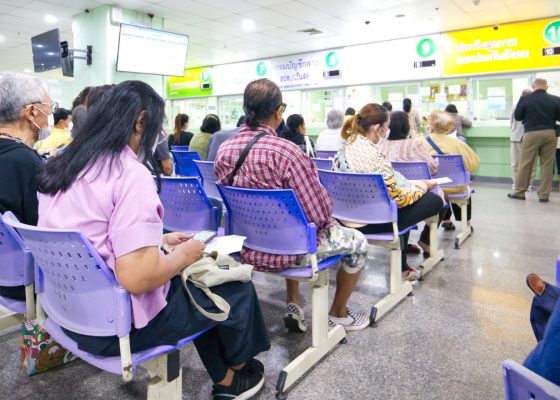The Health Ministers’ Meeting said all the right things, but came out with no ‘tangible actions’ to improve the mental healthcare system.
The country’s health ministers emerged from Friday’s Health Ministers’ Meeting in Melbourne full of good intentions but, when it came to decisive action, the end result “falls well short”, said mental health advocates.
In a communique released late on Friday, the ministers confirmed they had:
- agreed to work collaboratively to ensure new investments in youth mental health are integrated effectively with existing services;
- agreed children and young people (0-25 years) will remain a priority population in the next National Mental Health and Suicide Prevention Agreement;
- committed to continue to focus on building support for children and young people in education settings, including to work towards age harmonisation;
- committed to all governments supporting the implementation of the Online Safety Amendment (Social Media Minimum Age) Act 2024 in late 2025;
- reaffirmed commonwealth, state and territory governments’ shared responsibility and acknowledged the importance of investing in and delivering psychosocial supports;
- agreed to at least maintain existing funding for psychosocial support services;
- agreed to consult with lived experience and sector representatives;
- agreed to a National Mental Health Information Sharing Framework, developed by NSW;
- endorsed the publication of the Psychiatry Supply and Demand Study;
- supported the development of a national mental health workforce capability framework to be delivered by June 2026;
- agreed to discuss options to achieve national harmonisation of ADHD prescribing practices at the next Health Ministers’ Meeting.
“While the strong ministerial engagement with lived experience and sector representatives is welcome, unfortunately the meeting outcomes fall short on genuinely progressing reform,” said a statement from Mental Health Australia.
Carolyn Nikoloski, CEO of MHA said:
“While maintaining service continuity is welcome, it doesn’t go far enough for the 493,600 people who are currently missing out on these supports.
“We welcome the commitment to consult with the sector to inform future investment, but there is an urgent need to expand access to support now,” said Ms Nikoloski.
“There are good intentions to work more closely with education ministers in ensuring mental health is embedded in the education system, yet what we truly need is tangible action to progress this goal, as outlined in our recommendations to ministers ahead of the meeting.
“Similarly, the commitment to work towards age harmonisation of services across jurisdictions is a start, but it falls well short of the decisive action needed to ensure equitable and seamless access to care Australia-wide.
“The commitment to develop a national mental health workforce capability framework by June 2026 is an important step in ensuring that the workforce is well placed to respond to the needs of the community.
Related
“Mental Health Australia looks forward to working with governments to ensure the design and delivery of the framework draws on the considerable expertise of the sector.”
Ms Nikoloski said it was time for “tangible actions”.
“Overall, today’s meeting shows some progress on national mental health reform, however to deliver the real change that is needed, we need all governments to come to the table with tangible actions that demonstrate their commitments to prioritise mental health, supported by long-term investment plans,” she said.
“We will continue to advocate for a more connected community and mental health system, that enables all people, regardless of where they live, their background, or their income, to access the mental health supports they need.”
Other outcomes from the meeting, according to the health ministers themselves, were:
- commitment to finalise negotiations for a new multi-year National Health Reform Agreement and related disability reforms by the end of 2025;
- a briefing from independent reviewer Sue Dawson on key findings of her review of complexity in the National Registration and Accreditation Scheme ahead of the release of the final report in July 2025;
- a briefing from the new CEO of AHPRA, Justin Untersteiner;
- endorsed a proposal to review the Australasian Health Facility Guidelines;
- requested health CEOs undertake a rapid review of the regulatory and accreditation environment for the ART and IVF sectors and identify opportunities for improvement and action to be reported back within three months, including options for implementation of an independent accreditation body and process; consideration of how existing state-based regulatory regimes could be strengthened; and consideration of whether a national regulatory approach would deliver benefit;
- supported the commonwealth leading the coordination of patient and workforce assurance activities relating to the Healthscope Private Hospital Group sale process.




